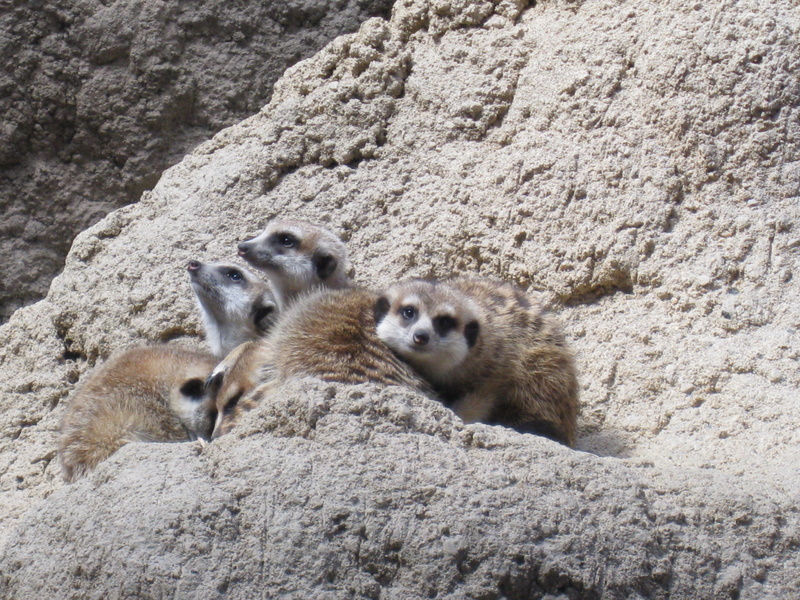
They cluster together, eyes bright, chins up, studying the mob staring at them through the glass.
And the meerkats stare back with equal intensity.
It’s Saturday morning at the Woodland Park Zoo and the facility’s newest stars, the meerkats, have already attracted a sizable crowd of jostling, jabbering, photo-shooting humans, eager to experience first-hand the meerkat mystique.
At first glance, the meerkats seem a bit small to have warranted the huge amount of attention the quirky species has been getting ever since the Animal Planet’s documentary series “Meerkat Manor” became a runaway hit. But watch them for a few minutes, even without an anthropomorphistically skewed voice-over track, and you find yourself wondering what’s going on behind those tiny pop-star eyes.
I haven’t watched a single episode of the TV show, but after seeing the little mob (a group of meerkats is called a mob) at the zoo huddled together in the glaring spotlight of their sudden fame, I felt an undeniable desire to protect them from harm. Yet although I understand the feverish desire of humans to save some of the animals whose limited existence is threatened by the unrelenting expansion and consumption of ours, it seems more and more hopeless as we hurtle forward. Species come and go. The planet, in spite of our best efforts to convince it to behave, does what it will — exploding, warming, cooling, sliding, flooding and frying. Humans excel at adapting. We move away from the heat, bundle up against the cold, curse the darkness, etc. But other species don’t seem to be equipped with as many tools. They scurry underground, climb trees, dive deeper in the ocean. Yet they can’t get away from us.
Around the world the argument continues to rage about whether or not humans are responsible for the global warming currently taking place at an unprecedented rate. But no one can argue that humans aren’t completely responsible for hunting many species into near extinction. Elephants, rhinos, tigers, and countless other high profile animals teeter on the brink. We’ve all heard the stories. Our zoos work hard to provide a kind of safety net for the most threatened species. But once it gets to the point where the only safe place for a wild animal is in a zoo, we’ve lost something irreplacable.
The meerkat, for all its current trendiness, is one of the lucky species. Its natural habitat is the Kalahari Desert in South Africa. Not a lot of human pressure on that real estate. No worries about global warming there. As long as we don’t discover oil under the sand, the meerkats have a fighting chance. And it doesn’t hurt that their diet of choice is insects, although they can also get by on scorpions if the larder runs low on cockroaches. Thus, a species with good odds for survival when the going gets rough.
Maybe that’s part of their mysterious charisma. If you look deep into their haunted little eyes you can almost see the future, after humans have gone on to the next phase or whatever.
Maybe we misheard the old saying. The meerkats shall inherit the Earth.